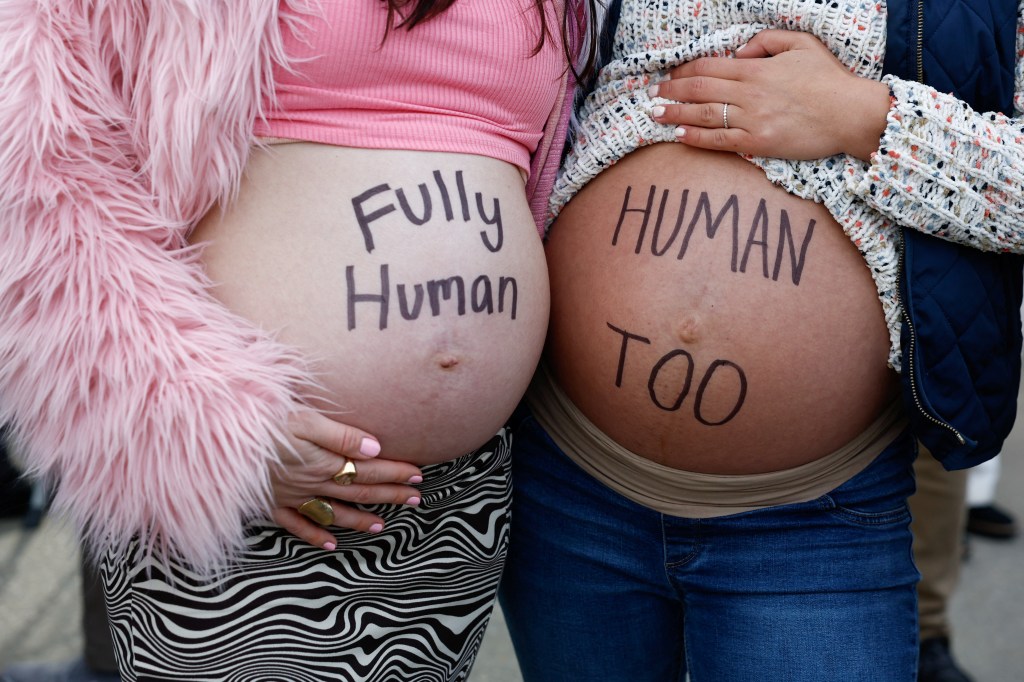Supreme Court weighs mifepristone access in latest flashpoint abortion case
Most Supreme Court justices appeared wary Tuesday of letting abortion opponents sue to restrict access to mifepristone, used in nearly two-thirds of all US pregnancy terminations last year.
In its first abortion-related case since overturning Roe v. Wade in June 2022, the high court heard oral arguments over whether the Food and Drug Administration properly approved the drug in 2000 and appropriately relaxed rules to access it in 2016 and 2021.
At the end of nearly two hours of proceedings, the court seemed likely to keep current federal rules in place that permit mifepristone to be shipped through the mail without any need for an in-person visit with a doctor, and allow women to take the medication to induce an abortion through the first 10 weeks of pregnancy.
The arguments turned on the issue of whether a group of anti-abortion doctors and organizations, dubbed the Alliance for Hippocratic Medicine, even had standing to challenge the FDA’s rules on mifepristone.
Solicitor General Elizabeth Prelogar, arguing for the Biden administration, said the group did not “come within 100 miles” of having the legal right to sue
In April last year, after a challenge from the group, a Texas federal judge issued a preliminary ruling overturning the FDA’s decades-old approval of mifepristone. In August, the New Orleans-based Fifth Circuit Court of Appeals imposed a stay on the FDA’s 2016 rule changes that made the drug more easily accessible.
“Is it the only time any court has restricted access to an FDA-approved drug by second-guessing [the] FDA’s expert judgment about the conditions required to ensure that drug’s safe use?” Justice Elena Kagan asked of the Texas ruling, to which Prelogar contended that to the best of her knowledge, it was.
Mifepristone is part of a two-drug regimen used in conjunction with misoprostol to induce a medical abortion.
Jessica Ellsworth, representing drug distributor Danco, argued that the lower courts relied on arguments based on retracted studies and lacked sufficient scientific expertise to make their rulings.
“Those sorts of errors can infect judicial analyses precisely because judges are not experts in statistics, they are not experts in the methodology used for scientific studies for clinical trials,” she argued.
“FDA has many hundreds of pages of analysis in the record of what the scientific data showed, and courts are just not in a position to parse through and second-guess that.”
The anti-abortion advocates were represented by Erin Hawley, senior counsel for the conservative Alliance Defending Freedom group and wife of Sen. Josh Hawley (R-Mo.).
Hawley’s arguments were in part premised on the notion that the FDA’s rules did not make sufficient room for conscientious objections to prescribing the abortion pill.
At one point, both liberal Justice Ketanji Brown Jackson and conservative Justice Neil Gorsuch pressed Hawley about whether she wanted the high court to go further and do away with the FDA’s regulatory rollbacks altogether.
“We have before us a handful of individuals who have asserted a conscience objection. Normally, we would allow an equitable relief to address them,” Gorsuch said.
“This case seems like a prime example of turning what could be a small lawsuit into a nationwide legislative assembly on an FDA rule or any other federal government action.”
Hawley cited one of the doctors involved in the challenge, Dr. Christina Francis, who claimed she suffered a moral injury by giving emergency treatment to patients who have taken the medication.
“That might be impracticable,” Hawley said. “If we’re thinking again about the emergency room situation. Would Dr. Francis again have to know when she’s in the emergency room whether this is a miscarriage and ectopic pregnancy or an elective abortion?” Hawley said.
Several justices, such as conservative Amy Coney Barrett, pressed Hawley about the details of Francis’ story and seemed skeptical that she had suffered moral injury.
At one point, Hawley argued the FDA rollback meant that doctors may be forced to assist with medical abortions despite their objections if patients have complications from mifepristone.
“If you go out of state, there’s a higher likelihood you’re not going to have a follow-up visit. What the FDA’s regime has done is turn ER rooms into those follow-up visits,” she said.
Health care providers have said that if mifepristone is no longer available or is too hard to obtain, they would switch to using only misoprostol, which is somewhat less effective in ending pregnancies.
The two consolidated cases, FDA v. Alliance for Hippocratic Medicine and Danco Laboratories, LLC v. Alliance for Hippocratic Medicine, are likely to be decided by the end of June.
Next month, the justices will hear arguments over whether a federal law on emergency treatment at hospitals must include abortions, even in states that have otherwise banned them.





















